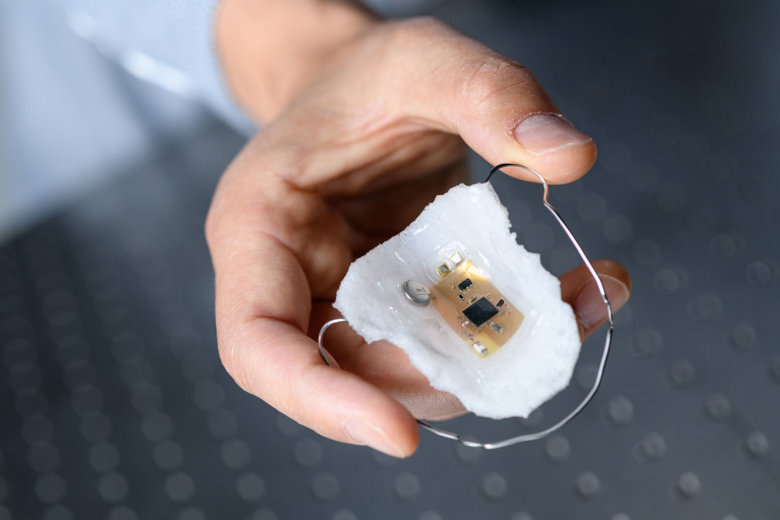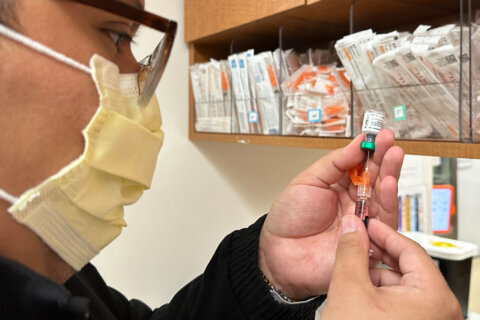
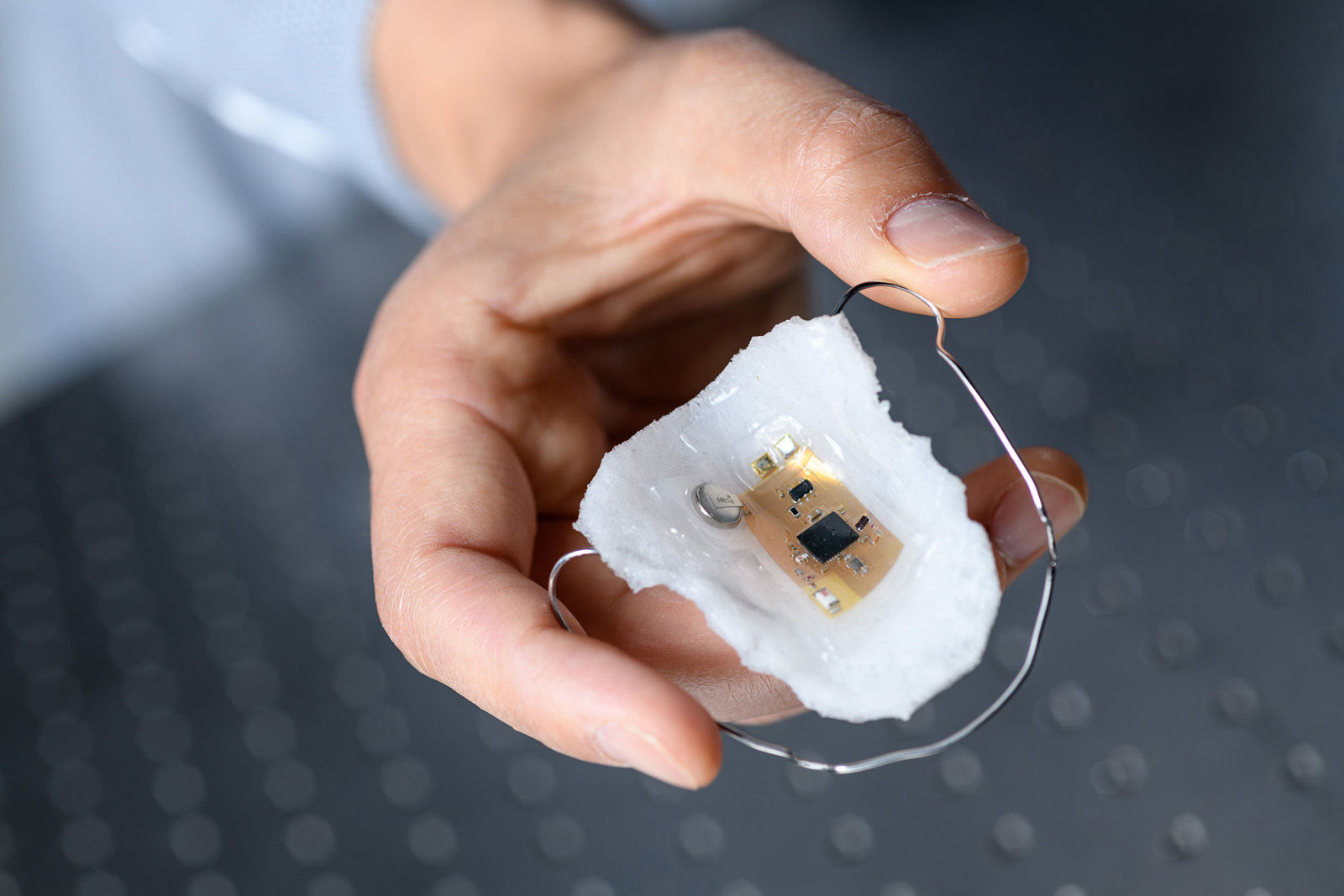

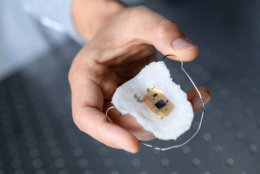
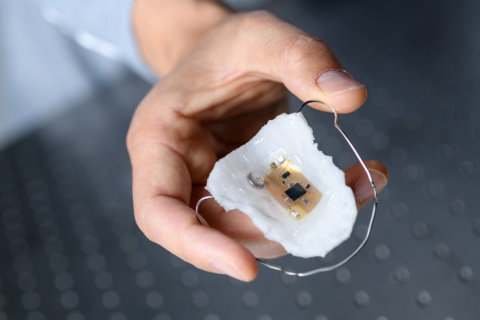
WASHINGTON — Eating too much salt can be bad for people with hypertension, obesity and diabetes, and it can be tough adding up daily salt consumption, but nanotechnology might help with that.
Researchers at the Georgia Institute of Technology have created a salt sensor that fits in the roof of your mouth with an oral retainer and uses Bluetooth to send salt intake data to a smartphone app.
“We have a prototype that’s functioning without any problem,” said Woon-Hong Yeo, an assistant professor in the Woodruff School of Mechanical Engineering at the Georgia Institute of Technology. “The only concern that I have right now is the size.”
Yeo wants to miniaturize the device so it can be wrapped onto a tooth and ultimately be made small enough to be embedded into a targeted nerve to automatically stimulate the brain based on information from the sensor.
“So that your brain can recognize: ‘Okay, I have to stop eating pizza and potato chips (today). I have to be healthy,'” Yeo said.
The device can function up to 15 hours continuously before needing a charge and can send info via Bluetooth to smart devices up to 33 feet away.
Yeo is confident there is a market for the device he has patented through the university.
“Obviously, there are a lot of people who are suffering from hypertension, diabetes and obesity and it’s well known that they have to control their diets, especially of sodium intake,” Yeo said.
Georgia Tech’s Commercialization Office is exploring opportunities to license the device to the private sector for manufacturing. There’s no timeline though, for when it might be commercially available.
Nine out of 10 Americans eat too much sodium according to the American Heart Association.
Yeo thinks recent developments are just the beginning of what’s possible.
He believes the salt sensing device can be developed to monitor biomarkers in saliva that reflect the presence of various diseases such as cancer.

